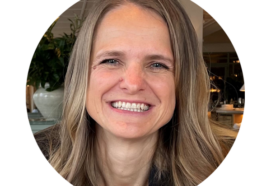By Grace Watts
For many of us, music plays a vital and fundamental role in our lives. We enjoy its benefits for fun and relaxation, but we also know it can support access to and enhance learning and engagement, particularly in the areas of communication, and social, emotional and physical wellbeing.
Music therapy is a psychological therapy that uses the medium of music to achieve non-musical aims, such as encouraging self-expression where verbal skills are limited due to a physical or learning disability, or when clients find verbal therapy too direct or challenging. It is an evidence-based intervention recognised by NHS, NICE and OfSTED, and is an Allied Health Profession, regulated by the Health and Care Professions Council, alongside art therapy and drama therapy.
Music therapy differs from other music making or teaching because it is not education based. For example, the outcomes in music therapy are not about teaching the client how to play an instrument or read music, rather the focus is on supporting the client to move towards achieving their potential. As with any client group that music therapists work with, there is no pre-requisite for children and young people to be ‘musically skilled’. Music therapy works on the basis that we are all innately musical and therefore all have the capacity, regardless of level of ability, to respond to music.
With the ability to work flexibly across contexts, music therapists are skilled in working with the wide range of needs this diversity of settings presents e.g. music therapists work with children and young people in mainstream settings with full verbal skills who perhaps present with more emotional, social, behavioural needs, attachment disorders (this can include work with adoption and fostering) through to children and young people with profound and multiple learning disabilities and complex medical needs, and those with life-limiting conditions which require them to be home-schooled. Being able to work in this way enables music therapists to integrate with other mental health and wellbeing services within the school and beyond.
Integral to their role, music therapists provide assessment as well as treatment, manage referral and waiting list systems, engage in relevant and current CPD to ensure best practice, provide a safe space for the work to take place in, provide information about the service for different audiences, provide training and supervision where needed, contribute to EHC plans, work effectively with internal and external agencies. They also offer staff training and contribute meaningfully, not only to whole-school wellbeing (including staff wellbeing) but also community wellbeing.
Music therapists work in a variety of ways e.g. they may work with a child or young person to prevent exclusion or with a child or young person who is at the point of exclusion. They also might work with that child and their family to help them re-enter the educational system. Within an educational context, music therapists are working towards supporting the child’s development overall which means supporting their psychological and emotional wellbeing, as well as supporting their social and communication skills, regardless of their level of need or ability. They are also there to support the child or young person to access their world around them to their full potential, and the mental health and wellbeing of these children and young people is their priority.
They offer a range of interventions including individual and group work as well as joined up, multidisciplinary interventions e.g. music therapy and speech and language therapy groups. Their person-centred approach enables them to support children and young person uniquely, using the flexibility inherent in music.
To find out more or how you can access music therapy, please contact the British Association for Music Therapy by visiting www.bamt.org or calling 020 7837 6100.



Discussion
From 2014 I have applied music may be in the form of unprofessional manner as I haven’t done any music therapy course on my school children whom I used to teach chemistry. I have enjoyed and it is really effective for them. Now i want to know the proper procedures to get more good results. Please send me if possible these kinds of work documentation.